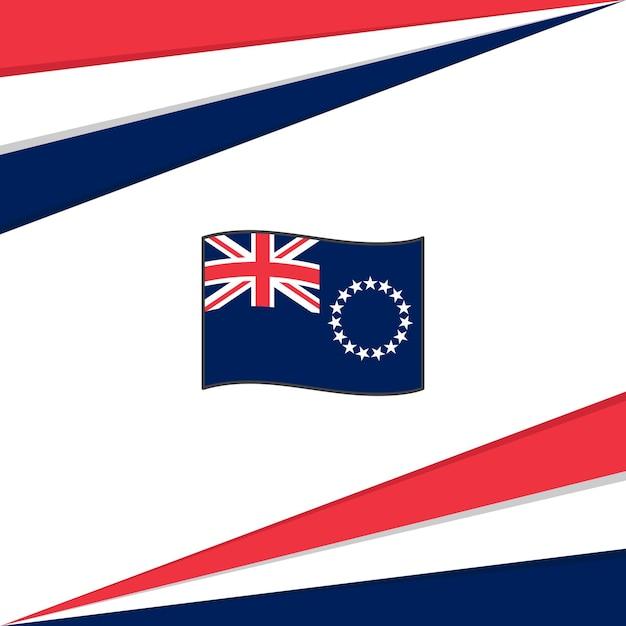Are you tired of worrying about the security of your assets? Every year, numerous investors and business owners face legal battles that cost them tens of thousands of dollars. But what if we told you there’s a solution?
Cook Islands Trusts have become increasingly popular in recent years as they offer a safe haven for your assets. This type of trust can be used to protect your assets from lawsuits and ensure they’re preserved for future generations.
However, with the benefits of a Cook Islands Trust, comes the cost. How much does a Cook Islands Trust cost to set up? Are Cook Island trusts safe? What are the drawbacks, if any? In this extensive blog post, we’ll dive into everything you need to know about Cook Islands Trust Cost. We’ll also cover Cook Islands Trust law and potential problems you may face while setting up a trust.
Stay tuned, and we’ll provide you with the ultimate guide to Cook Islands Trust Cost that will help you make an informed decision.
Cook Islands Trust Cost
When it comes to creating a trust, it’s not just about the benefits but also the costs that come with it. In this section, we will be discussing the cost of setting up a trust in Cook Islands.
Initial Setup Cost
The cost of setting up a trust in Cook Islands varies depending on the complexity of the trust structure. Generally, a trust with a simple structure would cost around $2,500 to $5,000. However, for a more complex trust, the cost can range from $10,000 to $15,000.
Ongoing Maintenance Cost
Apart from the initial setup cost, there are also ongoing maintenance costs associated with Cook Islands trusts. The annual trustee fee ranges from $3,500 to $5,000 per year, depending on the complexity of the trust structure. In addition to the trustee fees, there are also government fees and other administrative costs to consider.
Professional Fees
When setting up a Cook Islands trust, it’s essential to work with professional advisors such as lawyers, accountants, and trustees. These advisors charge a fee for their services, and the cost can vary depending on the complexity of the trust structure as well as the advisor’s experience and expertise.
Cost vs. Benefit
While setting up a trust in Cook Islands can be expensive, it’s essential to consider the benefit that comes with it. Cook Islands trust offers asset protection, confidentiality, and tax benefits, making it an excellent option for individuals looking to protect their assets.
In conclusion, setting up a trust in Cook Islands can cost a significant sum of money. However, the benefits provided by the trust can outweigh the costs, making it a valuable tool for asset protection. It’s essential to work with professional advisors to ensure that the trust is set up correctly and cost-effectively.
Cook Islands Trust Law
When it comes to setting up an offshore trust, one of the key considerations is the jurisdiction that you choose. Each country has its laws and regulations concerning trusts, so it’s crucial to find a jurisdiction that fits your specific needs. The Cook Islands is one of the most popular offshore locations for setting up trusts, thanks to its strong privacy laws, economic stability, and favorable tax regime.
The Cook Islands Trusts Act
The Cook Islands Trusts Act is the primary law that governs the establishment and management of trusts in the country. This law is based on the concepts of flexibility and protection, making it an attractive destination for individuals and businesses seeking to safeguard their assets. One of the most significant advantages of the Cook Islands Trusts Act is that it enables settlors to establish trusts that do not need to follow the same rules as trusts established in other countries.
Asset Protection
The Cook Islands Trusts Act afford a high degree of asset protection to individuals and businesses. In the event of a lawsuit or creditor action, the assets held in a Cook Islands trust are protected from creditors in the home country. The only exception is in cases where the trust has been deliberately established with the intent to avoid satisfying a legal judgment.
Trustee Requirements
The Cook Islands Trusts Act sets out certain requirements regarding trustees. Trustees are required to be licensed by the Cook Islands Financial Supervisory Commission and maintain a physical presence on the island. They must also maintain accurate records and provide annual accounts to beneficiaries. Trustees have a fiduciary duty to act in the best interests of beneficiaries.
Overall, the Cook Islands Trusts Act provides significant benefits and flexibility when it comes to establishing trusts. It has a strong focus on protecting the interests of beneficiaries, providing a high degree of asset protection, and a favorable tax regime. For individuals and businesses looking to set up an offshore trust, the Cook Islands is one of the most attractive jurisdictions to consider.
Cook Islands Trust Problems
Are you interested in establishing a trust in the Cook Islands? While Cook Islands trusts offer various benefits, there are also several issues you should be aware of. In this section, we will discuss some of the common problems associated with setting up a Cook Islands trust.
Lack of Transparency
One of the significant issues with Cook Islands trusts is the lack of transparency. The Cook Islands is known for offering strict privacy laws, meaning that trust information is kept confidential. However, it also means that there is a lack of transparency, which can lead to trust beneficiaries not knowing the full picture of their trust’s activities.
Limited Accessibility
Another potential issue with establishing a Cook Islands trust is accessibility. Cook Islands is a small country and is physically far from major financial centers. This can lead to problems when it comes to accessing funds or managing the trust effectively.
Lack of Regulation
One of the other issues with Cook Islands trusts is the lack of regulation. While there are some regulations in place, they are not as strict as those found in other financial centers. This means that there is a higher risk of fraud and other financial crimes associated with Cook Islands trusts.
Limited Legal Remedies
Finally, another potential problem with Cook Islands trusts is the limited legal remedies available in the event of a dispute. While the Cook Islands offers some legal protection, it is limited in comparison to other countries. This means that it can be challenging to resolve disputes related to a Cook Islands trust legally.
In conclusion, while Cook Islands trusts are popular for their privacy and asset protection benefits, they do come with some issues that you should be aware of. Before setting up a trust in the Cook Islands, we recommend seeking professional legal and financial advice to ensure that you are fully informed about the potential risks and benefits.
Are Cook Island Trusts Safe
If you’re considering setting up a Cook Islands trust, one of the most important things you’ll want to know is whether your assets will be safe. Rest assured that Cook Islands trusts are considered some of the safest in the world. Here’s why:
Asset Protection
One of the main reasons that Cook Islands trusts are so popular is their exceptional asset protection. They provide a safe haven for your funds, shielding them from potential creditors and legal proceedings. The Cook Islands has a robust legal system that recognizes and upholds these trusts, so you can be sure that your assets are in good hands.
Privacy Protection
Cook Islands trusts offer a high level of privacy protection, which can be especially attractive to high-net-worth individuals looking to safeguard their personal and financial information. The jurisdiction has strong confidentiality laws, and trustees are legally bound to maintain strict confidentiality regarding trust details, beneficiaries, and settlors.
High Standards of Regulation
The Cook Islands has a well-regulated and supervised financial industry, with trusts being subject to strict requirements and guidelines. All Cook Islands trusts must have at least one local trustee, who must be a licensed trust company with a solid reputation. These companies are regulated by the Financial Supervisory Commission of the Cook Islands, ensuring that they operate to high standards.
In summary, Cook Islands trusts are safe and reliable structures for asset protection and privacy purposes. The combination of robust legal protections, privacy safeguards, and strict regulation make the Cook Islands a top choice for individuals looking for high-quality wealth management solutions.
Keep in mind that the trust laws and regulations are complex, and it’s important to seek professional legal and financial advice before establishing any trust structure.
How Much Does a Cook Island Trust Cost
If you are considering setting up a Cook Island trust, then you are probably wondering how much it will cost. The truth is, there is no fixed cost for setting up a Cook Island trust, as it depends on various factors such as the complexity of the trust structure, the assets included, and the services of the trustee you decide to work with.
Factors That Affect the Cost of a Cook Island Trust
Trust Structure
The more complex the trust structure, the more expensive it will be. If you require multiple trustees, beneficiaries, and assets, then you will need to pay more for the services of a trustee to manage and administer the trust.
Assets Included
The value and type of assets you plan to include in the trust can also affect the cost. If you are including assets such as real estate, businesses, or investment portfolios, then you may need to pay extra fees to cover the costs of managing those assets.
Trustee Fees
Choosing a trustee is an important decision that will also affect the cost of setting up a Cook Island trust. The trustee’s services may include ongoing administration fees, transactional fees, and legal fees.
The Range of Costs
The costs of setting up a Cook Island trust typically range from $5,000 to $20,000 or more. This range includes the legal fees, trustee fees, and other related expenses. However, it is important to note that the cost can be higher for more complex trust structures or assets, whereas simpler trusts may cost less.
If you plan to set up a Cook Island trust, it is important to consider the various factors that can affect the cost. By working with a trusted trustee and understanding the costs involved, you can create a trust that protects your assets and provides you with peace of mind. While the cost may seem high initially, it is a worthwhile investment that can benefit you and your beneficiaries in the long term.
How Much Does It Cost to Set Up a Cook Island Trust
If you’re interested in setting up a Cook Island trust, one of the first questions that might come to mind is, “How much will it cost me?” The cost of setting up a Cook Island trust varies depending on a few factors, such as the complexity of the trust, the services you require, and the fees charged by your trust company. But don’t worry, we’ll break it down for you.
Basic Costs
The basic costs of setting up a Cook Island trust typically range from $2,500 to $5,000. This fee covers the initial consultation, legal and administrative fees, and the drafting of the trust documents. Depending on your requirements, you may also need to pay for additional services such as asset protection, corporate trustee services, and banking services.
Ongoing Costs
In addition to the initial costs, there are also ongoing costs associated with maintaining a Cook Island trust. These costs can range from $1,500 to $5,000 per year and cover services such as trust administration, legal fees, and trustee fees. These fees may vary depending on the complexity of your trust and the services you require.
Many factors can impact the cost of setting up and maintaining a Cook Island trust. Some of these factors are the type of assets you plan to hold in the trust, the number of beneficiaries, and the number of people involved in administering the trust. Additionally, ensuring that the trust is managed by a reputable trust company can add to the cost.
In conclusion, setting up a Cook Island trust can be an excellent way to protect your assets and wealth. However, it does come with a financial cost. When considering whether a Cook Island trust is right for you, it’s essential to weigh the benefits against the costs to determine whether it’s worth it for your situation.



